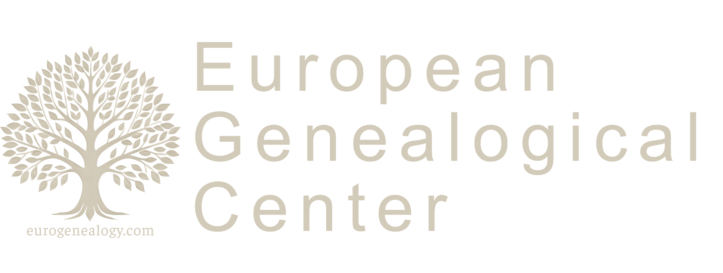Tracing Irish ancestors: family history & heritage confirmation
Discover your ancestry dating back to the 16th century
Archival search and family tree research in Ireland
Exploring family roots in Ireland opens a window into centuries of layered cultural history, religious traditions, and political change across the Emerald Isle. Ireland’s genealogical landscape is defined by its unique position as both part of the British Isles and a nation with its own distinct Gaelic heritage. From the early Christian period to centuries under English rule and the later emergence of an independent state, Ireland’s complex past has shaped a rich and multilingual archival tradition. Parish records, land surveys, and historical censuses reflect both continuity and upheaval in Irish life. The European Genealogical Center offers expert support for those seeking to trace Irish ancestry, whether through constructing detailed family trees, interpreting handwritten church entries, or exploring ancestral connections to major migrations and historical events. With access to records dating back to the 17th century—and occasionally earlier—it is possible to reconstruct meaningful family narratives set within Ireland’s vibrant historical context.
Many individuals contact our team when researching Irish lineage for personal enrichment, heritage preservation, or to connect with Irish roots before travel or citizenship application. We conduct detailed archival searches across national and local repositories, including the National Archives of Ireland, county libraries, parish offices, and ecclesiastical archives. Our specialists recover essential documents even from partially destroyed or fragmentary sources—particularly relevant in Irish research due to the loss of many state records in the 1922 Public Record Office fire. We issue certified copies of church registers, land records, and civil certificates, all verified for official use when needed. For those wishing to preserve their family history in a lasting format, we offer bespoke genealogical books containing family trees, archival reproductions, maps, historical commentary, and photographs where available. Working across Irish, English, and Latin sources, our team navigates historical inconsistencies and administrative changes with precision and care.
Sources of genealogical research in Ireland
Genealogical research in Ireland relies on a diverse range of historical documents reflecting the country’s complex religious, social, and political landscape. The cornerstone sources are parish registers—especially those of the Roman Catholic Church and the Church of Ireland—containing baptisms, marriages, and burials. These were recorded in Latin or English and later in Irish or bilingual formats, depending on the region, parish, and time period. In Ulster and parts of Northern Ireland, Presbyterian records are equally essential. Civil registration began in 1864 (for Catholic births, marriages, and deaths) and earlier for non-Catholic marriages. Griffith’s Valuation and the Tithe Applotment Books provide a census substitute for the 19th century, while estate papers, tenant rolls, school registers, and other administrative documents round out a remarkably detailed picture of rural and urban Irish life. Each document offers insights into occupation, kinship ties, residence, property holdings, and migration patterns—particularly important in the context of famine-era displacement, emigration, and transatlantic family connections.


In addition to vital and church records, we examine complementary archives that enrich genealogical profiles with texture, depth, and historical context. These include land leases, probate files, military enlistment forms, employment histories, and educational records, offering insights into social and economic status. Passenger lists, naturalization papers, and overseas correspondence are especially relevant for tracing Irish families who emigrated to North America, Australia, and the United Kingdom, capturing migration routes, settlement patterns, and family connections across continents. Local and national censuses from 1901 and 1911, along with surviving fragments of earlier enumerations, allow for reconstruction of household structures, familial relationships, and broader social networks. We also consult estate maps, town plans, guild records, and municipal documents, revealing the physical, economic, and cultural environments in which ancestors lived, worked, and interacted with their communities. Our approach combines archival precision, linguistic expertise, and cultural sensitivity to bring Irish family stories fully to life, connecting names, dates, and places with the lived experiences, social roles, and historical circumstances of each generation.
Neighboring countries where we conduct research
Examples of our research
Below you can review examples of research reports received by our customers:
Prices for genealogical services in Ireland
You can find a detailed price list and description of all services of European Genealogical Center here
Prices for genealogical services in Ireland
Genealogical research
From €1500
Tracing family history back to the 17th century
Biographical search
From €800 to €2000
Establishing the life story of an individual and their close relatives
Nationality confirmation
From €500 to €1500
Identifying details about a person’s ethnic origin
Document search
From €200 to €1200
Obtaining certificates, parish registers, and civil registry records
Family history book
From €2500
Creating a unique publication describing the genus history
Family history website
From €2000
Development of a personal website dedicated to your family’s history
Submit a request, and we will contact you shortly
You can also reach us directly by sending an email to: european.genealogical.center@gmail.com or writing to us in Telegram

european.genealogical.center@gmail.com
© 2026
All rights reserved
All rights reserved
Contact us:

